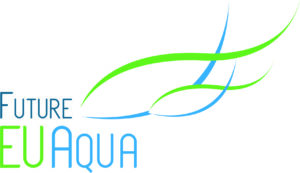FutureEUAqua
Title: Future growth in sustainable, resilient and climate friendly organic and conventional European aquaculture — FutureEUAqua
Funding Source: EU H2020
Budget IMBBC: 404,125€
Start / End Date: 2018 - 2022
Web site URL: https://futureeuaqua.eu/
Project Progress: 100%
Research Directions:
Fish nutrition and feeding
Production technologies
Fish quality and safety
Aquaculture Genetics
Description:
 The overall objective of FutureEUAqua is to effectively promote sustainable growth of resilient to climate changes, environmental friendly organic and conventional aquaculture of major fish species and low trophic level organisms in Europe, to meet future challenges with respect to the growing consumer demand for high quality, nutritious and responsibly produced food. To this end, FutureEUAqua will promote innovations in the whole value chain, including genetic selection, ingredients and feeds, non-invasive monitoring technologies, innovative fish products and packaging methods, optimal production systems such as IMTA and RAS, taking into account socioeconomic considerations by the participation of a wide spectrum of stakeholders, training and dissemination activities. To achieve the objective and to relate to the work program, nine workpackages will contribute to improvements of future aquaculture. To ensure sustainable and resilient production of fish in the future we will work with tailor made fish and feed (WP1 and WP2), and validate fish performance and water quality in costeffective production systems (WP4). Consumer demand and awareness of how to choose sustainable and climate friendly seafood is part of WP3. With the increasing production of seafood, we face space-conflicts, which, in combination with the current regulatory frameworks will be considered (WP3). Wireless sensor technology (WP5) for health and welfare monitoring and novel technology for product quality and packaging (WP6) to meet future demands, will be implemented. Stakeholders' knowledge and views will be important, and communication, dissemination (WP8) as well as training sessions (WP7) will be emphasized.
The overall objective of FutureEUAqua is to effectively promote sustainable growth of resilient to climate changes, environmental friendly organic and conventional aquaculture of major fish species and low trophic level organisms in Europe, to meet future challenges with respect to the growing consumer demand for high quality, nutritious and responsibly produced food. To this end, FutureEUAqua will promote innovations in the whole value chain, including genetic selection, ingredients and feeds, non-invasive monitoring technologies, innovative fish products and packaging methods, optimal production systems such as IMTA and RAS, taking into account socioeconomic considerations by the participation of a wide spectrum of stakeholders, training and dissemination activities. To achieve the objective and to relate to the work program, nine workpackages will contribute to improvements of future aquaculture. To ensure sustainable and resilient production of fish in the future we will work with tailor made fish and feed (WP1 and WP2), and validate fish performance and water quality in costeffective production systems (WP4). Consumer demand and awareness of how to choose sustainable and climate friendly seafood is part of WP3. With the increasing production of seafood, we face space-conflicts, which, in combination with the current regulatory frameworks will be considered (WP3). Wireless sensor technology (WP5) for health and welfare monitoring and novel technology for product quality and packaging (WP6) to meet future demands, will be implemented. Stakeholders' knowledge and views will be important, and communication, dissemination (WP8) as well as training sessions (WP7) will be emphasized.








